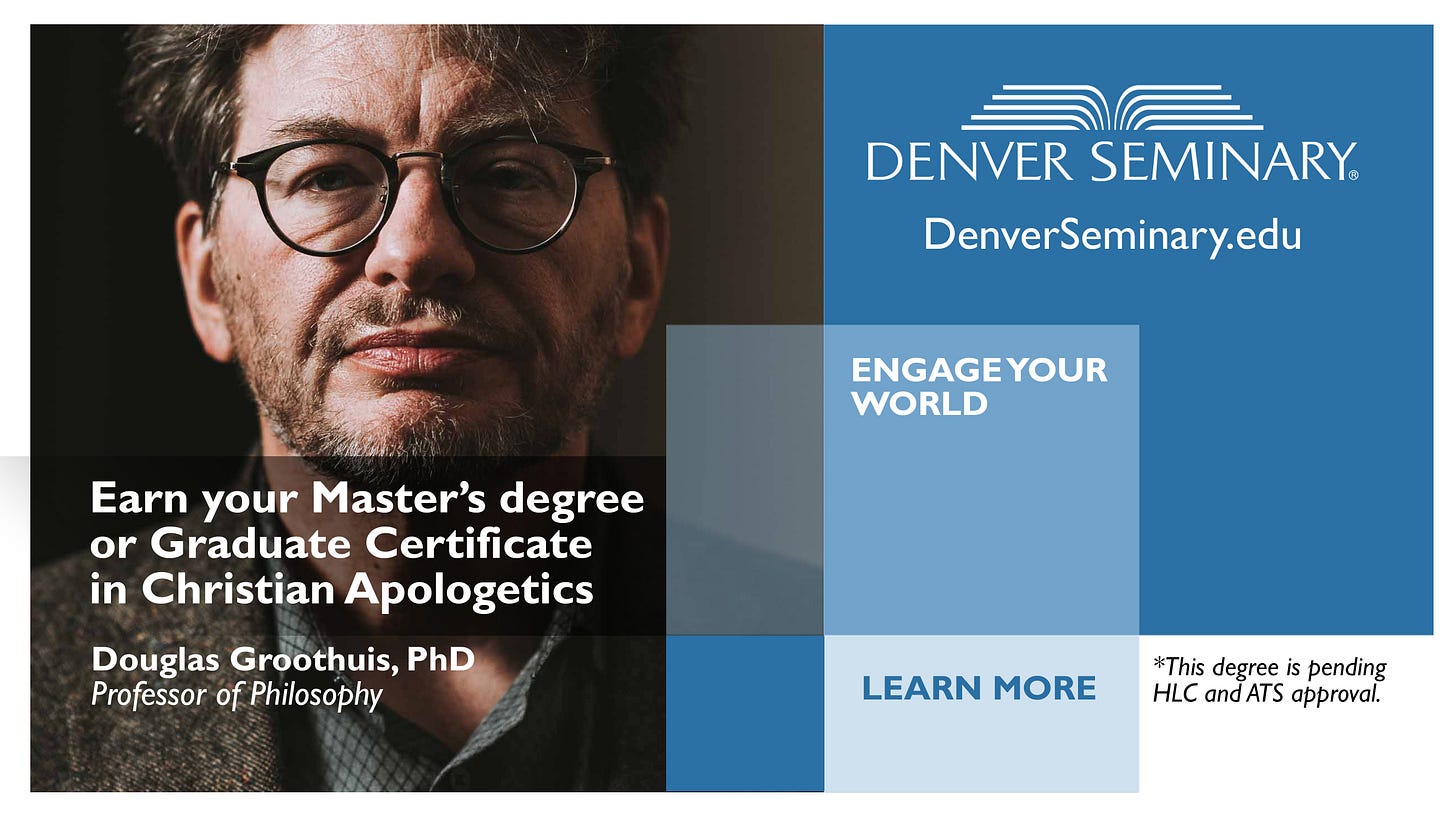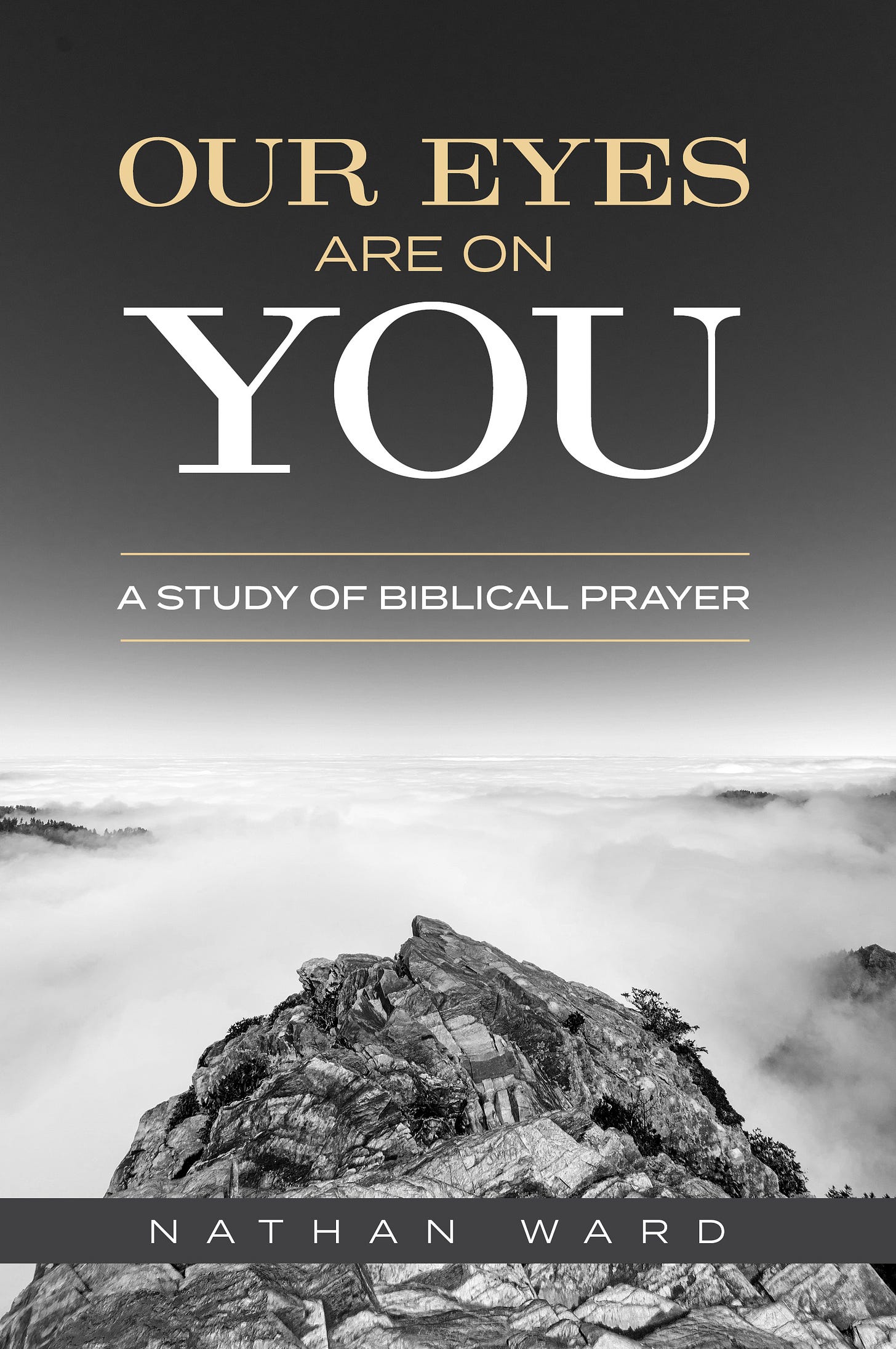In the view of mainstream culture today, there is no such thing as a principled case for the Christian view of marriage that limits it to one man and one woman. Opposition to same-sex marriage, in this view, can only spring from bigotry, hate, or fear. And once these labels are applied, debate is typically viewed to be no longer necessary, just as one would avoid engaging in reasoned debate with someone who is racist or sexist.
There are, however, good reasons that Christians embrace a biblical view of marriage, and we’ll explore the most important one in this article, followed by a critique of a common argument justifying same-sex relations. Though critics may not recognize the Old and New Testaments as authoritative texts, the following will show that orthodox Christians base their viewpoint on reasons grounded in what they believe to be God’s revelation, rather than visceral emotional reactions.
The Creation Model of Marriage
To understand God’s intention and design for marriage, we have to go back to the very first marriage—that of Adam and Eve in the garden. That Adam and Eve’s marriage is prototypical for humanity is clear because the author infers from it this universal principle: “That is why a man leaves his father and mother and is united to his wife, and they become one flesh” (Gen. 2:24).1 When asked about his view of marriage, Jesus likewise cited the creation account and specifically Genesis 2:24 (Matt. 19:3-4).
Given that Adam and Eve’s marriage serves as the model for all humanity, important implications follow. In Genesis 2, Adam is presented with a multitude of animals, which he gives names to, but even among all of these living creatures “no suitable helper was found” for him (Gen. 2:20). God recognizes Adam’s need for a companion, and declares, “It is not good for the man to be alone. I will make a helper suitable for him” (Gen. 2:18).2 The suitable helper that God creates to be Adam’s wife is the woman Eve. Adam immediately recognizes that this is the partner he’s been missing, and exclaims, “This is now bone of my bones and flesh of my flesh” (Gen. 2:23)—or as John Goldingay paraphrases, “This is it! She is so different from the animals! This is a person suitable for me!” Goldingay goes on to observe that this interaction “explains the natural attraction of man and woman for each other. In the woman he marries, a man finds a missing part of himself, something that complements him.”3
If another man would have been a suitable partner for Adam, God would have created a second man to be his lifelong companion. But God recognized that Adam not only needed fellowship, but someone whose insights, gifts, and dispositions were different from his own. Thus, together, men and women comprise the image of God in humanity—neither is replaceable or dispensable (Gen. 1:27). This is also true of Adam and Eve’s sexual complementarity. In order to “be fruitful and increase in number; fill the earth and subdue it,” God designed Adam and Eve with the capacity to come together as “one flesh” and produce offspring (Gen. 2:24). As Robert Gagnon notes,
In the creation story, intercourse between a man and a woman is justified on the grounds that woman was formed from man. Marriage in general and sexual intercourse in particular is thus evaluated as an attachment of two complementary beings into “one flesh,” a reunion with one’s sexual “other.” No such justification is, or can be, provided for same-sex unions.4
This is born out by the fact that same-sex sexual activity is proscribed in both the Old and New Testaments.5 Because of God’s distinct design for marriage from the very beginning, the vast majority of Christians have recognized that marriage is defined by the union of one man and one woman.6 As A. T. B. McGowan elaborates,
It has always been the conviction of the Christian church in all its branches, based upon Holy Scripture, that sexual relationships outside of that between husband and wife are contrary to God’s intention. This is not just the view of a few ultra-conservative theologians but has been the historic conviction of the church for two thousand years and remains the moral conviction of the vast majority of the world’s Christians today. It is also a view shared with the other Abrahamic faiths.7
Same-sex unions, on the other hand, fall short of God’s design by negating the psychological and sexual complementarity God established with the first man and woman.
Can We Follow Our Hearts?
Many believe that since they have a seemingly natural, inborn attraction to the same sex, that this must be the way God made them. To think otherwise would be to imply that God had made a mistake in creating them the way they are. While this sounds like a compelling point at first glance, it makes the crucial but misguided assumption that our natural desires are inherently good and God-given. But as C. S. Lewis rightly observed,
From the statement about [the] psychological fact ‘I have an impulse to do so and so’ we cannot by any ingenuity derive the practical principle ‘I ought to obey this impulse’. . . . Telling us to obey Instinct is like telling us to obey ‘people’. People say different things: so do instincts. Our instincts are at war.8
Because of Adam and Eve’s rebellion in the garden that resulted in the fall (Genesis 3), every aspect of human existence has been corrupted by sin, including our sexuality (Romans 1:24-27; 5:12, 18-19; 7:18). Thus McGowan writes, “the sexuality of each one of us has been damaged by our inherited fallenness, in different ways and in different measures. For some of us that will mean that they experience same-sex attraction, some will experience gender confusion, others will be sexually attracted to children, yet others will only be sexually satisfied with multiple partners and so on.”9
Every human being is made in God’s image and thus has incalculable value and worth. All of us are also loved by God without measure. But because of the fall and our resulting sinful nature, all of our desires have to be evaluated in light of God’s will for us revealed in Scripture. We can’t simply follow our hearts because our hearts can easily deceive us. As the prophet Jeremiah wrote, “The heart is deceitful above all things and beyond cure. Who can understand it?” (Jer. 17:9; cf. Prov. 14:12; Eccles. 9:3; Mark 7:21-22).
Nothing said here is meant to diminish the great anguish many Christians and non-Christians experience as they grapple with same-sex attraction.10 For those who do, individual believers and the church should come alongside them as friends, listeners, counselors, and mentors. Through love, encouragement, support, and wise counsel, same-sex attracted Christians can live joyful, godly lives as followers of Jesus Christ.11
*This is a slightly modified version of an article that originally appeared at Summit Ministries.
Notes
As Tremper Longman III states, “Even though the word marriage is not used here, the traditional understanding of this passage as the divine establishment of marriage is correct since one does not need the explicit mention of the word to have the concept. And certainly later Scripture understands this intimate relationship as marriage.” Genesis, ed. Tremper Longman III, The Story of God Bible Commentary (Grand Rapids, MI: Zondervan, 2016), 51.
A “helper” in contemporary English sometimes connotes an inferior status, but that’s not the case for the Hebrew term here or the context of the passage. As Kenneth Mathews explains, “There is no sense derived from the word linguistically or from the context of the garden narrative that the woman is a lesser person because her role differs. . . . In the case of the biblical model, the ‘helper’ is an indispensable ‘partner’ (REB) required to achieve the divine commission. ‘Helper,’ as we have seen from its Old Testament usage, means the woman will play an integral part, in this case, in human survival and success. What the man lacks, the woman accomplishes.” K. A. Mathews, Genesis 1-11:26, vol. 1A, The New American Commentary (Nashville: Broadman & Holman Publishers, 1996), 214.
John Goldingay, Genesis for Everyone, Part 1: Chapters 1–16, Old Testament for Everyone (Louisville, KY; London: Westminster John Knox Press; SPCK, 2010), 41.
Robert A. J. Gagnon, The Bible and Homosexual Practice: Texts and Hermeneutics (Nashville: Abingdon Press, 2010), Logos edition (n.p.).
Most notably, Lev. 18:22, 20:13; Rom. 1:18–27; 1 Cor. 6:9–11; 1 Tim. 1:8–11; Jude 6-7.
In the last several decades, some Christian scholars have also attempted to deny the scriptural normativity of heterosexual marriage, but such revisionist readings have been soundly refuted. See, for example, Robert A. J. Gagnon, The Bible and Homosexual Practice: Texts and Hermeneutics (Nashville: Abingdon Press, 2010) and S. Donald Fortson and Rollin G. Grams, Unchanging Witness: The Consistent Christian Teaching on Homosexuality in Scripture and Tradition (Nashville: B&H Academic, 2016).
A. T. B. McGowan, “Human Sexuality and Christian Anthropology,” in Thomas A. Noble, Sarah K. Whittle, and Philip S. Johnston, ed., Marriage, Family and Relationships: Biblical, Doctrinal and Contemporary Perspectives (London: Apollos, 2017), 202.
C. S. Lewis, The Abolition of Man or Reflections on Education with Special Reference to the Teaching of English in the Upper Forms of Schools (New York: HarperOne, 2001), 35–36.
A. T. B. McGowan, “Human Sexuality and Christian Anthropology,” in Thomas A. Noble, Sarah K. Whittle, and Philip S. Johnston, ed., Marriage, Family and Relationships: Biblical, Doctrinal and Contemporary Perspectives (London: Apollos, 2017), 202.
Some theologians disagree, but I don’t believe Scripture indicates that same-sex attraction, in itself, is a sin. Rather, what is sinful is engaging in same-sex sexual activity.
The same could be said, in a sense, of all believers, as each of us struggles with our own sinful words, actions, and thoughts, but find help, encouragement, and strength in Christian community.
— Christopher L. Reese (MDiv, ThM) is a writer, editor, and journalist. He is the founder and editor of The Worldview Bulletin and cofounder of the Christian Apologetics Alliance. He is a general editor of the Dictionary of Christianity and Science (Zondervan, 2017) and Three Views on Christianity and Science (Zondervan, 2021) and his work has appeared in Christianity Today, Bible Gateway, Beliefnet, Summit Ministries, and other sites.
Image by StockSnap from Pixabay
[sponsored]
“I love this book! ... I really don't know of a better book that has this purpose and audience in mind. It should be used in seminaries and Christian colleges to train pastors or students to share their faith intelligently and to understand the culture we seek to reach... The book is not only informative; it's also interesting!”
— JP Moreland, Distinguished Professor of Philosophy, Talbot School of Theology, Biola University and author of Scientism and Secularism.
“Ever struggled to maneuver in a spiritual conversation or to present the gospel in a challenging context? Christian apologist Eric Hernandez has a solution... His minimalist approach will change the way you talk about God, Jesus, and the Bible. If you're ready to respond to the latest cultural developments and objections, The Lazy Approach to Evangelism will help you make the case.”
— J. Warner Wallace, Dateline-featured Cold-Case Detective, Senior Fellow at the Colson Center for Christian Worldview, Adjunct Professor of Apologetics at Talbot School of Theology (Biola University), and author of Cold-Case Christianity, Person of Interest, and The Truth in True Crime.
“There are many books on using Christian apologetics for evangelism. But when someone is interested in beginning their study of Christian apologetics, from now on, this book by Mr. Hernandez will be the first book I recommend!”
— Michael Licona, Professor of New Testament Studies, Houston Christian University
Find The Lazy Approach to Evangelism at Amazon and GC2 Press.
Christian apologetics helps to quiet the doubts of those we are witnessing to and helps to effectively carry out the mission of God in the world.
The Master of Arts or Graduate Certificate in Christian apologetics* equips students in the discipline of defending the Christian worldview as objectively true, compellingly rational, and existentially pertinent to the whole of life. In addition to core courses in Bible, theology, and mentoring, through this degree students will learn the proper method of apologetics, the arguments for the existence of God, the finality of Christ, and the reliability of the Bible, as well as how to bring the gospel to those in other religions, learn basic biblical ethics, how to respond to contemporary moral questions, and how to respond intelligently to challenges to the biblical worldview.
*These degrees are pending HLC and ATC approval.
LEARN MORE AND APPLY AT:
https://denverseminary.edu/program/master-of-arts/christian-apologetics/
Our Eyes Are On You: A Study of Biblical Prayer
Our Eyes Are On You: A Study of Biblical Prayer is an examination of the context and contents of 35 Biblical prayers to make connections to our lives, informing us about prayer, the things about which we should pray, and the God to whom we pray. The prayers covered include those of Abraham, Moses, Hannah, David, Jehoshaphat, Hezekiah, Jeremiah, Habakkuk, Jesus, the Apostles, Paul, and many others.
“This book expertly guides us on a tour of prayers in the Bible so that we better understand the wondrous mystery of prayer but also meaningfully enhances our own life of prayer. It is a marvelous gift that I will read and re-read.”
— David E. Garland, Professor Emeritus of Christians Scriptures, George W. Truett Theological Seminary
“This is a beautifully clear and profound and wide-ranging and thoughtful and illuminating book on prayer in the Scriptures. The people who read it and put its insights into practice are going to have their relationship with God transformed.”
— John Goldingay, Senior Professor of Old Testament, Fuller Theological Seminary
Find Our Eyes Are on You at Amazon, Barnes & Noble, and other major booksellers.
Advertise in The Worldview Bulletin
Do you have a ministry, book, course, conference, or product you’d like to promote to 6,769 Worldview Bulletin readers? Click here to learn how. We’re currently booking for September-October.
Support The Worldview Bulletin
Your support makes The Worldview Bulletin possible! We couldn’t do this without the support of you, our readers. We would be grateful for your help in any of the following ways:
Subscribe to receive our newsletter and gain access to our full archive of scores of articles and new videos.
Give a gift subscription to a family member or friend who would benefit, or subscribe a group of four or more and save 25%.
Make a one-time or recurring donation.
“Staffed by a very respected and biblically faithful group of Evangelical scholars, The Worldview Bulletin provides all of us with timely, relevant, and Christian-worldview analysis of, and response to, the tough issues of our day. I love these folks and thank God for their work in this effort.”
— JP Moreland, distinguished professor of philosophy, Talbot School of Theology, Biola University, author of Scientism and Secularism: Learning to Respond to a Dangerous Ideology (Crossway)
“The Worldview Bulletin is a must-have resource for everyone who’s committed to spreading and defending the faith. It’s timely, always relevant, frequently eye-opening, and it never fails to encourage, inspire, and equip.”
— Lee Strobel, New York Times bestselling author of more than forty books and founding director of the Lee Strobel Center for Evangelism and Applied Apologetics
“I find The Worldview Bulletin very stimulating and would encourage all thinking Christians to read it.”
— John Lennox, emeritus professor of mathematics, University of Oxford, emeritus fellow in mathematics and philosophy of science, Green Templeton College, author of Cosmic Chemistry: Do God and Science Mix? (Lion)
“The Worldview Bulletin is a wonderful resource for the church. It’s timely and helpful.” — Sean McDowell, associate professor in the Christian Apologetics program at Talbot School of Theology and author of The Fate of the Apostles: Examining the Martyrdom Accounts of the Closest Followers of Jesus (Routledge)
“Are you looking for a way to defend your Christian worldview? If so, look no further. At The Worldview Bulletin you’ll encounter world-leading scholars dispensing truth in a digestible format. Don’t miss out on this unique opportunity to engage in this meeting of the minds.”
— Bobby Conway, Founder of The One-Minute Apologist, author of Does God Exist?: And 51 Other Compelling Questions About God and the Bible (Harvest House)
“The Worldview Bulletin is a wonderful resource for those desiring to inform themselves in matters of Christian apologetics. Learn key points in succinct articles written by leading scholars and ministers. All for the monthly price of a cup of coffee!”
— Michael Licona, associate professor of theology at Houston Christian University and author of Why Are There Differences in the Gospels? What We Can Learn From Ancient Biography (Oxford University Press)
“The Worldview Bulletin shines a brilliant light of truth in a darkening world. These authors, who are experts in their field, consistently provide logical, rational, moral and most importantly biblical answers, in response to the deceitful narratives we are bombarded with daily. I have found it a great source of enlightenment, comfort, and inspiration.”
— B. Shadbolt, Subscriber, New South Wales, Australia







Excellent defense of the Christian (Biblical) view of marriage, Chris! This should be shared throughout the churches.
Thank You Christopher for the clarity regarding 'following my heart'; and what man and woman do to clarify the Image of God for us.